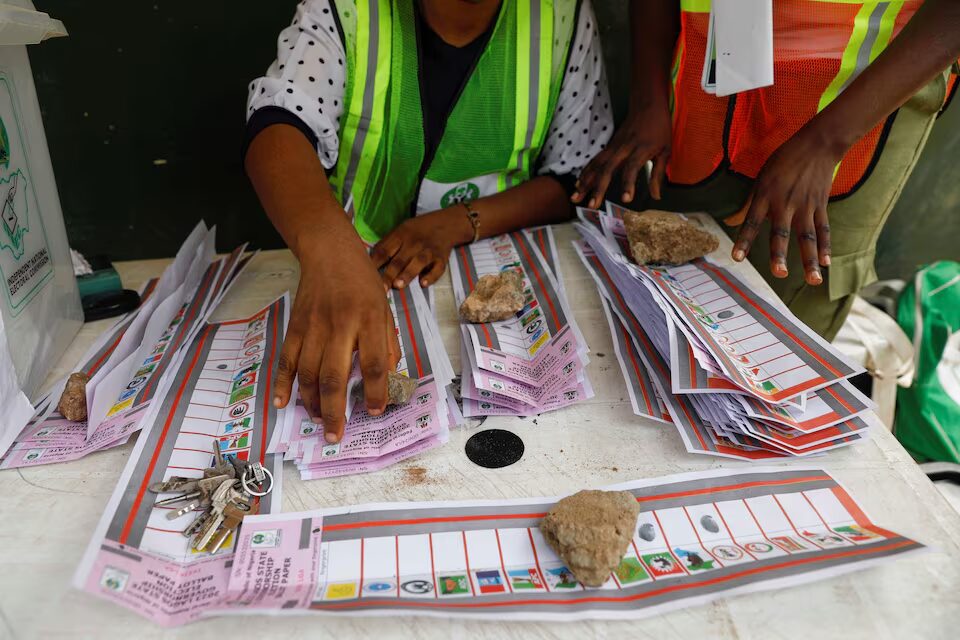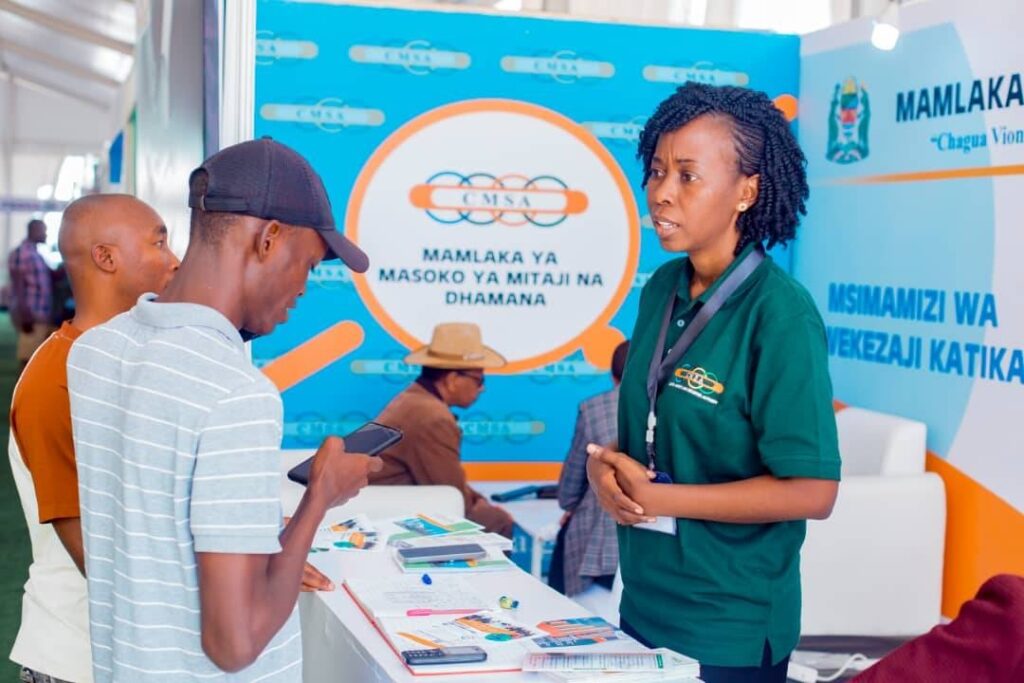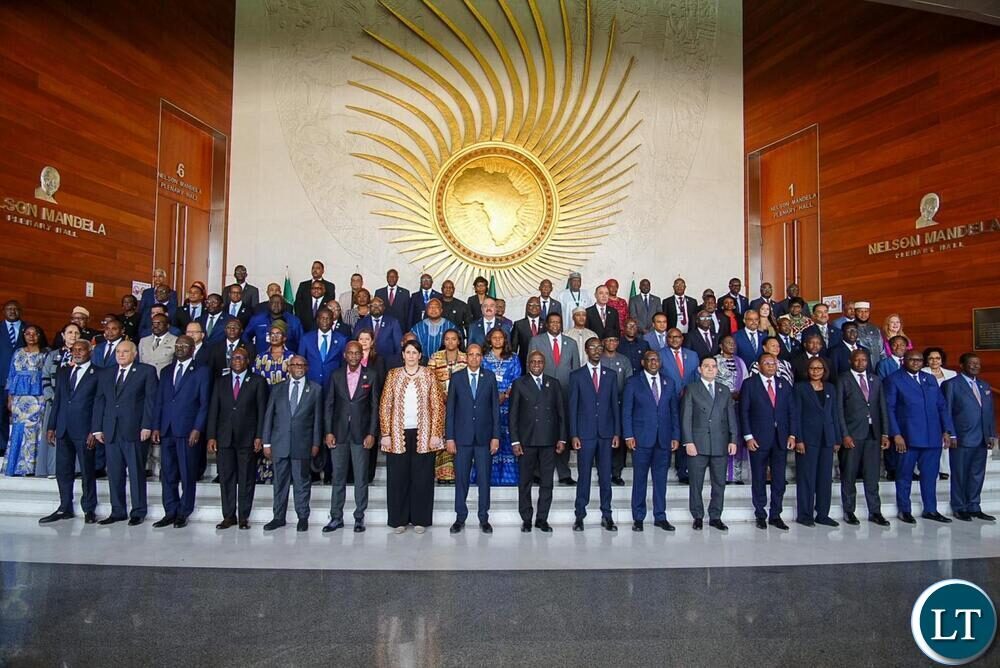
Tuesday 12th August 2025

非洲记者报道
On a weekday morning in Dar es Salaam, a handful of brokers swipe across their phones to watch bids in real time. It looks ordinary—another app, another price screen—until you follow the trail back to the regulator that has been nudging Tanzania’s capital market from promise to practice. Over the past decade, and especially in the last few years, the Capital Markets and Securities Authority (CMSA) has operated less like a traffic officer and more like a patient architect: standard by standard, product by product, building a system that can carry savings into investment and keep the market’s rhythm steady when headlines don’t.
The numbers tell a useful part of the story. The Dar es Salaam Stock Exchange closed 2024 with a 22.23% gain—outpacing bigger African peers and suggesting that liquidity and confidence are no longer accidents in Tanzania; they’re compounding outcomes. That performance did not arrive in a vacuum. In recent years, CMSA greenlit large, multicurrency note programmes for major banks, expanding the menu available to both institutions and households and signalling that the fixed-income market is where patient capital meets infrastructure ambition.
Still, regulation is only as persuasive as the vision behind it. Nicodemus D. Mkama, CMSA’s chief executive, has been explicit that development and inclusion must travel together. “We have been at the fore in steering development of innovative sustainable capital market products,” he noted, pointing to firsts in the region—gender and multicurrency green bonds, and Sharia-compliant sukuk—that broaden who can invest and what their money can build. That insistence on product diversity has been matched by a push on investor education: the Capital Markets University & Higher Learning Institutions Challenge now runs as an annual rite, pulling a new generation into the discipline of saving and investing.
If the 2015–2020 period was mostly about establishing rules and credibility, the last two years have been about modernising the plumbing. CMSA’s approvals and public guidance helped usher in digital distribution and trading tools, lowering friction for first-time investors and signalling to intermediaries that mobile is not a novelty but the default. “Milestones in 2024 reflect a supportive regulatory environment,” Mkama said earlier this year, underlining how new products—not slogans—pull investors into the market. Daily News And when a brokerage published its own performance assessment and outlook, CMSA used the moment to challenge peers: “It is the right time for other institutions to follow… in assessing market performance for 2024 and setting expectations for 2025.” IPP Media
The regulator’s stance is not romantic. A recent EU Twinning fiche described a market still underdeveloped relative to the banking system, with liquidity at the DSE a persistent concern and a limited product set by global standards. That sober assessment is exactly why CMSA’s current strategy emphasises depth—more instruments, more issuers, more informed investors—over spectacle. The 2025 launch of a dollar-denominated money-market fund—the first of its kind in Tanzania—illustrates the point: it gives treasurers and diaspora investors a regulated home for hard-currency liquidity while keeping those flows in the formal market.
What sets this moment apart is continuity. Leadership may change across ministries or market cycles, but CMSA has kept its line: broaden participation, tighten standards, and let data do the talking. On a typical day, that looks like a press notice for the Securities Industry Certification Course—unflashy, crucial training that quietly raises the professional bar. On another, it looks like approvals for multicurrency notes from household-name banks, anchoring longer-tenor funding inside Tanzania rather than offshore.
Mkama tends to avoid euphoric declarations, preferring incremental gains over grandiosity. But his brief is clear: keep the market open for ordinary Tanzanians and credible for institutions at home and abroad. The line between those goals is thinner than it appears. “What Vertex has done is a major contribution to capital market growth… such initiatives will expand and strengthen in the coming years through stakeholder collaboration,” he said, drawing a straight line between private initiative and public supervision.
Markets don’t become credible because they want to. They do so because supervisors insist on boring things—disclosure, certification, enforcement—while leaving room for useful experiments in product design and distribution. Tanzania’s capital market is not finished. But it is breathing better than it did a decade ago, and more people can hear the heartbeat. The next test is obvious: carry this seriousness into scale so that the savings of millions can travel safely into the projects that define the country’s next ten years. The architecture exists. The doors are open.


